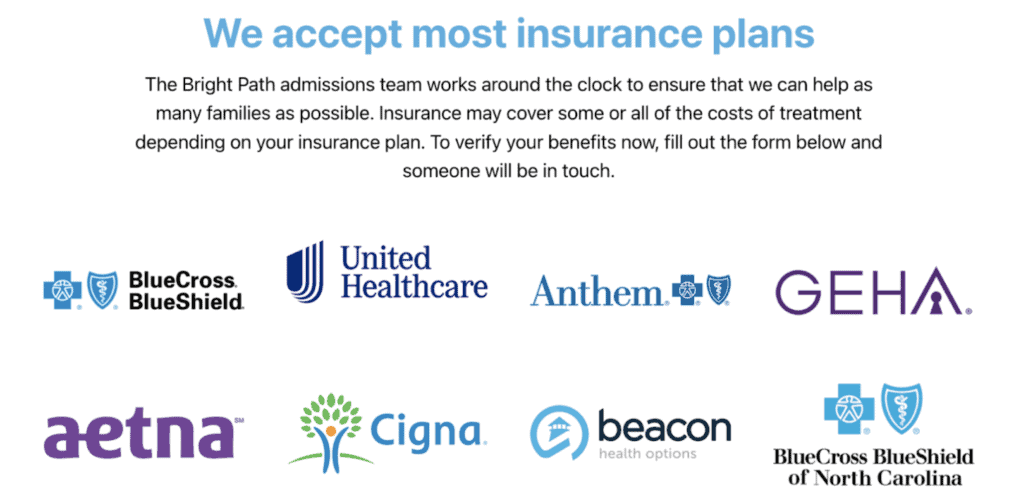
Is long term addiction rehab the key to lasting sobriety? Long term addiction rehab centers offer extended care, typically lasting from 90 days to two years, to tackle the root causes of addiction and aid sustained recovery.
In this article, learn about the components of these programs, types of treatment, and tips for choosing the right rehab center.
Key Takeaways
- Long-term rehab programs last from 90 days to two years and focus on comprehensive care for lasting sobriety.
- Inpatient, outpatient, and residential treatment options cater to different needs and progress levels of individuals in recovery.
- Key elements like detox, evidence-based therapies, and family therapy are vital for addressing addiction and supporting long-term recovery.
Understanding Long-Term Addiction Rehab
Long-term addiction rehab programs are designed to provide extended and comprehensive care for individuals struggling with substance use disorders. These programs typically last from 90 days to two years, depending on the individual’s needs and progress.
The primary goal of long-term rehab is to support individuals in achieving lasting sobriety by addressing the root causes of addiction and helping them develop coping mechanisms for a substance-free life.
Unlike short-term rehab, long-term programs offer a more thorough addiction evaluation, life skills training, and relapse prevention strategies. These programs are tailored to meet the changing needs of patients, providing varying levels of care as they progress through their recovery journey.
These programs aim to equip individuals with the tools and support necessary for sustained sobriety.
Find Hope and Healing: Call Us Now!
Take the first step towards a brighter future! If you or a loved one is seeking support for substance abuse, we are here to help. Call us today and let our dedicated team guide you to the right treatment options. Your path to recovery starts now!
- Connect with an expert addiction specialist 24/7/365
- Learn about treatment costs
- Arrange fast access to a treatment program
Request a Call
OR
Make a Call
Types of Long-Term Rehab Programs
When it comes to long-term rehab programs, there are several options available, each designed to meet the unique needs of individuals in recovery. Choosing the right program depends on understanding the options available.
The main types of long-term rehab programs include inpatient treatment programs, outpatient treatment programs, and residential treatment programs.
Each type of program offers distinct advantages and focuses on different aspects of recovery. Inpatient treatment programs provide a highly structured environment with 24/7 care. Outpatient treatment programs offer flexibility, allowing patients to continue living at home while receiving treatment.
Residential treatment programs combine elements of both inpatient and outpatient care, providing 24/7 supervision within a supportive community setting.
Here’s an overview of each option.
Inpatient Treatment Programs
Inpatient treatment programs, often considered the gold standard for severe addiction issues, offer the highest level of care and support. These programs provide a structured and immersive environment where patients live at the facility and receive round-the-clock care and monitoring.
This setup is particularly beneficial for individuals with severe addictions, as it minimizes external triggers and distractions, allowing them to focus entirely on their recovery through inpatient addiction treatment programs.
Patients in an inpatient rehab program typically have access to comprehensive medical and psychiatric support, including drug and alcohol detox services, individual counseling, and group therapy sessions.
The length of stay in these programs can vary from several months to a year or more, depending on the individual’s progress and specific clinical milestones. Regular reviews and adjustments to the drug or alcohol treatment plan are essential to ensure that patients are on the right track towards lasting recovery.
A significant advantage of inpatient rehab is the sense of community and support it provides. Patients often live in semi-private rooms within a furnished facility, which fosters a sense of camaraderie and mutual support among residents.
This environment helps patients practice core recovery concepts and develop healthy life habits that are crucial for long-term sobriety.
Outpatient Treatment Programs
Outpatient treatment programs offer a more flexible approach to addiction recovery, allowing patients to live at home and maintain their daily responsibilities while receiving treatment.
These programs are ideal for individuals who have already completed an inpatient program or for those with less severe addiction issues. The flexibility of outpatient treatment means that patients can schedule therapy sessions and support group meetings around their work, school, or family commitments.
Despite not offering 24/7 care, outpatient programs provide comprehensive support, including individual counseling, group therapy, and family therapy. Patients can still benefit from evidence-based therapies and medication-assisted treatment, ensuring that they receive the necessary care to overcome addiction.
The ongoing support and structure of outpatient programs make them a valuable component of long-term recovery plans.
Residential Treatment Programs
Before: Residential treatment programs blend the best aspects of inpatient and outpatient care, providing 24/7 supervision in a supportive, community-based setting.
These programs are designed for individuals who need a structured environment but also benefit from the flexibility and community support that residential living offers. Patients live in a secure and substance-free setting, which helps reduce the risk of relapse and fosters a sense of safety and stability.
After: Residential treatment programs blend the best aspects of inpatient and outpatient care, providing:
- 24/7 supervision in a supportive, community-based setting
- A structured environment for individuals who need it
- Flexibility and community support that residential living offers
- A secure and substance-free setting to reduce the risk of relapse and foster a sense of safety and stability
One of the key benefits of residential treatment is the comprehensive support available. Patients have access to various therapeutic modalities, including individual and group therapy, life skills training, and educational programs tailored to their needs.
This holistic approach ensures that both the psychological and behavioral aspects of addiction are addressed, promoting overall well-being and recovery.
Family involvement is also a crucial component of residential treatment programs. Engaging family members in the recovery process helps repair strained relationships and fosters a supportive home environment, which is essential for long-term success.
Residential treatment programs create a structured and supportive environment conducive to healing and lasting recovery.
Key Components of Long-Term Rehab

Long-term rehab programs are built on several key components that work together to support individuals in their recovery journey. These components include:
- Drug and alcohol detox
- Evidence-based therapies
- Group therapy and support groups
- Family therapy
- Medication-assisted treatment
Each element plays a crucial role in addressing different aspects of addiction and helping patients achieve lasting sobriety.
Drug and Alcohol Detox
Detoxification is often the first and most critical step in the long-term rehab process. It involves safely managing the withdrawal symptoms that occur when an individual stops using drugs or alcohol.
Inpatient rehab programs typically include alcohol treatment services, providing a supervised environment where medical professionals can monitor patients and provide necessary interventions to manage withdrawal symptoms effectively.
The detox process is essential for preparing individuals for further treatment, as it helps clear their bodies of substances and allows them to focus on recovery. Starting with detox allows patients to move forward with a clearer mind and a healthier body, setting the stage for successful long-term recovery.
Evidence-Based Therapies
Evidence-based therapies are a cornerstone of long-term rehab programs, offering structured and scientifically validated approaches to treatment.
These therapies include individual counseling, group therapy, and family therapy, all designed to address the psychological aspects of addiction and help patients develop effective coping strategies.
Incorporating evidence-based therapies into treatment plans helps patients achieve sustained recovery and overcome addiction challenges. These therapies are crucial for helping individuals understand the root causes of their addiction and develop healthier behaviors and thought patterns.
Group Therapy and Support Groups
Group therapy and support groups play a vital role in long-term addiction recovery by fostering a sense of community and mutual support among participants. In group therapy sessions, patients can share their experiences, challenges, and successes, reinforcing the idea that they are not alone in their struggles.
This collective environment helps build meaningful connections that extend beyond treatment and provide ongoing support.
Common therapeutic techniques used in group settings include cognitive-behavioral therapy (CBT), mindfulness practices, and experiential therapies, all aimed at enhancing emotional well-being and promoting recovery.
Participation in group therapy offers valuable insights and encouragement from peers, which is crucial for long-term sobriety.
Family Therapy
Family therapy is an integral part of the recovery process, as it helps repair relationships that have been strained by addiction and fosters a supportive home environment. Family therapy enables open communication and collaborative problem-solving.
This open communication is essential for understanding each other’s perspectives and building a foundation of trust and support.
A supportive home environment created through family therapy can significantly reduce the risk of relapse and encourage individuals to maintain their recovery.
Families who participate in therapy often observe significant improvements in their dynamics, which can have a positive impact on the overall recovery journey.
Medication Assisted Treatment
Medication-assisted treatment (MAT) is a valuable component of long-term rehab programs, particularly for individuals with severe addictions. MAT involves using medications to manage withdrawal symptoms and reduce cravings, making it easier for patients to focus on their recovery.
This approach is often combined with counseling and behavioral therapies to provide a comprehensive treatment plan.
The use of medications in MAT is carefully monitored by medical professionals to ensure safety and effectiveness. Incorporating MAT into treatment programs offers additional support for overcoming addiction and achieving long-term sobriety.
Find Hope and Healing: Call Us Now!
Take the first step towards a brighter future! If you or a loved one is seeking support for substance abuse, we are here to help. Call us today and let our dedicated team guide you to the right treatment options. Your path to recovery starts now!
- Connect with an expert addiction specialist 24/7/365
- Learn about treatment costs
- Arrange fast access to a treatment program
Request a Call
OR
Make a Call
Addressing Co-Occurring Disorders
Many individuals seeking treatment for addiction and substance use disorder also struggle with co-occurring mental health disorders, such as depression, anxiety, or PTSD.
Addressing these co-occurring disorders is crucial for successful long-term recovery, as untreated mental health issues can complicate the treatment process and increase the risk of relapse.
Integrated treatment plans that address both substance use and mental health conditions are essential for individuals with co-occurring disorders. These plans often include a combination of therapies, medication management, and holistic approaches that focus on lifestyle, relationships, and environmental influences.
A strong support network, including friends and family, is also vital for navigating the challenges of recovery.
Benefits of Long-Term Rehab Programs

Long-term rehab programs offer numerous benefits that can significantly enhance the likelihood of maintaining sobriety and achieving lasting recovery.
One of the most significant advantages is the reduced risk of relapse, as extended treatment provides individuals with the time and support needed to develop effective coping mechanisms and address underlying issues.
Additionally, long-term rehab programs focus on improving overall health and well-being, including physical fitness and mental health. These programs often incorporate vocational training, life skills training, and ongoing aftercare support, helping individuals build a stable and fulfilling life post-rehab.
Success stories from former patients highlight the transformative impact of long-term rehab, showcasing how structured programs can help individuals reclaim their lives from addiction.
How to Choose the Right Long-Term Rehab Center
Choosing the right long-term rehab center is a crucial step in the recovery journey. It’s essential to evaluate personal treatment needs and preferences, ensuring that the selected program aligns with individual recovery goals.
Factors to consider include the quality of facilities, the qualifications of staff, and the types of treatment programs offered.
Understanding insurance coverage and exploring financial assistance options can also help mitigate the costs associated with long-term rehab.
Assessing Treatment Needs
Assessing your personal treatment needs and preferences is the first step in selecting the right rehab center. Consider the types of programs offered, such as partial hospitalization programs, intensive outpatient programs, and medication-assisted treatment.
It’s also important to understand the specific focus of the treatment center, whether it specializes in particular types of addiction or dual diagnosis. Interventionists can provide valuable services, including clinical assessments and transitioning patients into appropriate rehab programs.
A thorough assessment of your treatment needs ensures that the chosen rehab center provides the appropriate level of care and support for your recovery journey. This thorough assessment helps tailor the treatment plan to your specific situation, increasing the chances of a successful outcome.
Evaluating Facilities and Staff
When choosing a rehab facility, it’s essential to evaluate both the facilities and the staff to ensure you receive the highest quality care. Schedule a visit to tour the facility, meet the staff, and understand the treatment programs they offer.
Check for state licensure, accreditation, and the qualifications of the medical and counseling staff.
Evaluating the facility’s environment and staff expertise ensures you make an informed decision about your treatment.
Considering Insurance and Financial Options
Understanding your insurance coverage is crucial for accessing long-term addiction rehab services. Health insurance, particularly under the Affordable Care Act (ACA), generally covers long-duration rehab programs, including both inpatient and outpatient options.
Review your insurance policy to understand the extent of coverage, limitations, and specific requirements, as these factors will impact your overall treatment costs.
For those without sufficient insurance coverage, financial assistance is available through patient financial assistance funds and other programs designed to help individuals afford the necessary care.
Exploring all financial options helps you find a feasible way to access the necessary comprehensive treatment for long-term recovery.
Steps to Get Admitted into a Long-Term Rehab Program
Getting admitted into a long-term rehab program involves several key steps, starting with reaching out to admissions counselors. These professionals can guide you through the admission process and provide essential information about the available rehab programs.
The initial steps typically include an assessment and evaluation, followed by the formal admission process.
Initial Assessment and Evaluation
The admissions process for long-term inpatient rehab starts with an initial evaluation. This evaluation is provided as a free assessment. During this evaluation, healthcare professionals review your medical history, substance abuse history, mental health status, and screen for co-occurring disorders.
This thorough assessment helps determine the most appropriate treatment plan tailored to your specific needs.
A comprehensive evaluation allows rehab centers to develop an individualized treatment plan addressing all aspects of addiction and any co-occurring mental health issues. This initial step is crucial for setting the foundation for a successful recovery journey.
Admission Process
The formal admission process begins with completing paperwork that includes providing insurance information and consent to treatment. After completing the initial assessment, individuals may need to schedule an initial appointment or intake session with a therapist.
This step ensures that all necessary documentation is in place and that the treatment center can coordinate with your insurance provider to cover the cost of care.
Once the paperwork is completed, the detox process may begin if necessary, followed by the implementation of the personalized treatment plan. This structured approach helps ensure that all aspects of the patient’s needs are addressed from the very start of their rehab journey.
Success Stories: Achieving Long-Term Sobriety

Long-term rehab programs provide the essential support and structure required for individuals to overcome addiction and maintain sobriety. Many individuals who have participated in these programs have shared their journeys of overcoming addiction successfully, inspiring others to pursue similar paths.
These success stories often highlight how a structured and supportive rehab environment helped them achieve long-term sobriety and thrive in various aspects of their lives.
One such story is that of Dominic, who overcame severe challenges through a structured rehab program and reclaimed his life from addiction. His journey underscores the importance of comprehensive care and the impact it can have on an individual’s recovery.
Another former patient of River Oaks reported being over two years sober from a long-term heroin addiction, attributing their success to the compassionate care received during treatment.
These stories demonstrate the transformative power of long-term rehab programs. These programs help individuals navigate recovery challenges and achieve sustained sobriety by providing a strong support system, reducing the chances of relapse, and equipping patients with coping mechanisms and life skills.
Summary on Top Long Term Addiction Rehab Centers: Comprehensive Care for Lasting Recovery
Long-term rehab programs offer a comprehensive and structured approach to overcoming addiction, addressing both the physical and psychological aspects of recovery.
By exploring different types of rehab programs, understanding key components of effective treatment, and learning how to choose the right rehab center, individuals can make informed decisions that support their recovery journey.
Success stories from those who have achieved long-term sobriety underscore the transformative power of these programs. For anyone seeking lasting sobriety, long-term rehab provides the support and tools necessary to achieve and maintain recovery.
Find Hope and Healing: Call Us Now!
Take the first step towards a brighter future! If you or a loved one is seeking support for substance abuse, we are here to help. Call us today and let our dedicated team guide you to the right treatment options. Your path to recovery starts now!
- Connect with an expert addiction specialist 24/7/365
- Learn about treatment costs
- Arrange fast access to a treatment program
Request a Call
OR
Make a Call
Frequently Asked Questions
What is the typical duration of a long-term rehab program?
What types of therapies are included in long-term rehab programs?
How do I choose the right long-term rehab center?
What is the role of detox in long-term rehab?
Can family members be involved in the rehab process?
Our helpline is 100%
free & confidential
If you or someone you care about is struggling with drug or alcohol addiction, we can help you explore your recovery options. Don’t face this challenge alone—seek support from us.
Programs
Resources
Will my insurance
cover addiction
treatment?
We're ready to help
Find the best
drug or alcohol treatment
center
Are you or a loved one struggling with addiction? Call today to speak to a treatment expert.









